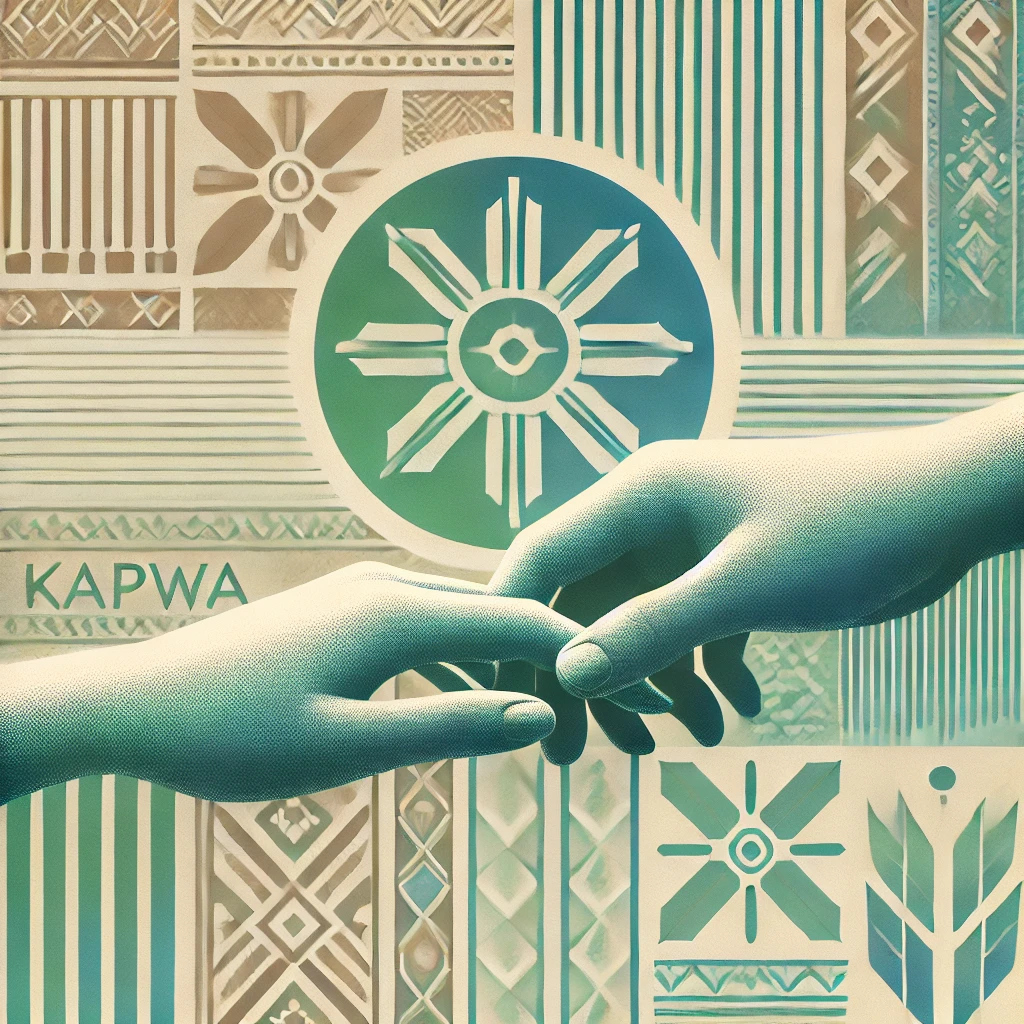In the bustling streets of Manila, amidst the cacophony of jeepneys and the aroma of sizzling street food, there’s an invisible thread that binds every Filipino together. It’s not just the shared love for adobo or the collective groan when traffic grinds to a halt. It’s something deeper, more profound – a concept that’s woven into the very fabric of Filipino society. This concept is called “Kapwa,” and it’s the heartbeat of Filipino culture.
As someone who’s spent years immersed in Filipino culture, I’ve come to realize that Kapwa is more than just a word – it’s a way of life. It’s the reason why Filipinos are known for their warmth, hospitality, and resilience in the face of adversity. But what exactly is Kapwa, and why is it so crucial to understanding the Filipino psyche? Let’s dive in and explore this fascinating concept together.
Unpacking Kapwa: More Than Just a Word
The Meaning of Kapwa
At its core, Kapwa is a Tagalog word that roughly translates to “fellow being” or “others.” But this translation barely scratches the surface of its true meaning. Kapwa embodies the idea that there’s an inherent unity and interconnectedness between oneself and others. It’s a recognition that we’re all part of a larger whole, and that our identities are inextricably linked to those around us.
When I first encountered this concept, it felt like a lightbulb moment. Suddenly, so many aspects of Filipino behavior that had puzzled me before made perfect sense. The way Filipinos always seem to find a connection with someone they’ve just met (“Ah, you’re from Cebu? My cousin’s neighbor’s dog groomer is from Cebu!”) isn’t just small talk – it’s Kapwa in action.
The Roots of Kapwa
To truly understand Kapwa, we need to delve into its origins. This concept didn’t just spring up overnight – it’s deeply rooted in the Philippines’ pre-colonial history. Before the Spanish arrived in the 16th century, the Philippines was a collection of barangays (villages) where communal living was the norm. In these close-knit communities, survival depended on cooperation and mutual support.
This communal spirit persisted even through centuries of colonization and has remained a cornerstone of Filipino culture. It’s fascinating to think that a concept that originated in small island communities has managed to survive and thrive in the modern, globalized Philippines of today.
The Many Faces of Kapwa
Kapwa in Everyday Life
One of the things that never fails to amaze me about Kapwa is how it manifests in everyday Filipino life. It’s not just a lofty philosophical concept – it’s a practical guide for social interaction. Let me give you a few examples:
- Sharing Food: Have you ever noticed how Filipinos always seem to have extra food to share? This isn’t just generosity – it’s Kapwa. The act of sharing food is seen as a way of extending oneself to others.
- Bayanihan: This tradition of communal work, where neighbors come together to help someone move their house (literally!), is Kapwa in its purest form. It’s about recognizing that your neighbor’s problem is your problem too.
- Family-Oriented Culture: The strong emphasis on family in Filipino culture, where extended family members are often as close as immediate family, is another manifestation of Kapwa.
- Pakikisama: This concept of getting along with others, even if it means compromising your own desires, is deeply rooted in Kapwa.
These everyday expressions of Kapwa create a society where people feel connected and supported. It’s like having a safety net woven from human relationships.
Kapwa in Language
One of the most fascinating aspects of Kapwa for me is how it’s embedded in the Filipino language itself. The Tagalog pronoun “tayo” is a perfect example. It means “we,” but it’s an inclusive “we” that includes both the speaker and the person being spoken to. This linguistic quirk reflects the Kapwa mindset – there’s no “us” and “them,” only “we.”
Even the way Filipinos address each other reflects Kapwa. Terms like “Ate” (older sister) and “Kuya” (older brother) are commonly used to address non-relatives, creating a sense of familial connection even among strangers.
The Psychology of Kapwa
Kapwa and Filipino Identity
As someone who’s spent years studying Filipino culture, I’ve come to see Kapwa as the key to understanding Filipino identity. Unlike Western cultures that emphasize individuality, Filipino culture sees the self as inherently connected to others. This doesn’t mean that Filipinos don’t have a sense of individual identity – rather, their sense of self includes their relationships with others.
This interconnected view of identity has profound implications. It influences how Filipinos make decisions, how they handle conflicts, and even how they view success. Success, in the Filipino context, isn’t just about personal achievement – it’s about uplifting your family and community along with you.
Kapwa vs. Western Individualism
To really appreciate the uniqueness of Kapwa, it’s helpful to contrast it with the Western concept of individualism. Here’s a table that breaks down some key differences:
| Aspect | Kapwa (Filipino) | Individualism (Western) |
|---|---|---|
| View of Self | Interconnected with others | Separate from others |
| Decision Making | Considers impact on others | Prioritizes personal benefit |
| Success | Collective achievement | Individual achievement |
| Conflict Resolution | Seeks harmony | Asserts individual rights |
| Social Interactions | Emphasizes connections | Emphasizes boundaries |
This comparison isn’t meant to suggest that one approach is better than the other – both have their strengths and challenges. But understanding these differences can go a long way in bridging cultural gaps and fostering mutual understanding.
The Power and Pitfalls of Kapwa
The Strengths of Kapwa
In my years of observing and experiencing Kapwa in action, I’ve seen firsthand the incredible strength it can bring to a society. Here are some of the most powerful aspects of Kapwa:
- Social Support: Kapwa creates a strong social support system. In times of crisis, Filipinos can rely on their extended network of family, friends, and even acquaintances for help.
- Resilience: The sense of shared identity fostered by Kapwa contributes to the famous Filipino resilience. When faced with natural disasters or economic hardships, the community comes together to support each other.
- Empathy and Compassion: Kapwa encourages a deep sense of empathy. When you see others as extensions of yourself, it’s natural to feel their joys and sorrows as your own.
- Cultural Preservation: Kapwa has helped preserve Filipino culture even in the face of globalization and centuries of foreign influence. It’s a unifying force that keeps Filipino identity strong.
These strengths make Kapwa a powerful force for social cohesion and mutual support. It’s one of the reasons why, despite economic challenges, the Philippines consistently ranks high in happiness indices.
The Challenges of Kapwa
However, like any cultural concept, Kapwa isn’t without its challenges. As much as I admire the beauty of Kapwa, it’s important to acknowledge its potential downsides:
- Conflict Avoidance: The emphasis on harmony can sometimes lead to conflict avoidance, where important issues are swept under the rug to maintain smooth relationships.
- Group Think: The strong sense of group identity can sometimes stifle individual expression or dissenting opinions.
- Excessive Self-Sacrifice: In some cases, the pressure to prioritize others’ needs over one’s own can lead to unhealthy self-sacrifice.
- Nepotism: The extension of Kapwa to family and friends can sometimes result in nepotism, particularly in professional settings.
Understanding these challenges is crucial for anyone trying to navigate Filipino culture, whether as an outsider looking in or as a Filipino seeking to balance traditional values with modern realities.
Kapwa in the Modern World
Kapwa in the Digital Age
As someone who straddles both traditional Filipino culture and the digital world, I’ve been fascinated to observe how Kapwa adapts to the internet age. Far from being eroded by technology, Kapwa seems to have found new expressions online:
- Social Media: Filipinos are among the world’s most active social media users. Platforms like Facebook and Twitter become extensions of the Kapwa network, allowing Filipinos to maintain connections across vast distances.
- Online Bayanihan: During natural disasters, social media becomes a powerful tool for organizing relief efforts, showcasing Kapwa in action on a large scale.
- Digital Remittances: The ease of sending money digitally has made it simpler for overseas Filipino workers to fulfill their Kapwa obligations to family back home.
- Virtual Communities: Online groups centered around shared interests or experiences become new spaces for Kapwa, creating connections among people who might never meet in person.
It’s heartening to see that even as technology changes the way we interact, the core principles of Kapwa remain strong.
Kapwa in a Globalized Philippines
As the Philippines becomes increasingly integrated into the global economy, Kapwa faces both challenges and opportunities. On one hand, exposure to Western individualism and the pressures of a competitive global market can strain traditional Kapwa relationships. On the other hand, Kapwa gives Filipinos a unique strength in an interconnected world.
Here’s a table showing some ways Kapwa adapts in a globalized context:
| Traditional Kapwa | Globalized Kapwa |
|---|---|
| Local community support | Global Filipino diaspora network |
| Face-to-face interactions | Digital connections |
| Sharing physical resources | Sharing knowledge and opportunities |
| Local bayanihan | International fundraising for causes |
| Family-based support | Professional networking |
This evolution of Kapwa shows its resilience and adaptability. Rather than being left behind by globalization, Kapwa is finding new ways to thrive.
The Future of Kapwa
Preserving Kapwa in Changing Times
As we look to the future, a question that often weighs on my mind is: How can we preserve the essence of Kapwa in a rapidly changing world? It’s a challenge that many Filipinos, both in the Philippines and in the diaspora, grapple with.
I believe the key lies in conscious effort and education. Here are some ways we can work to keep Kapwa alive:
- Cultural Education: Incorporating discussions of Kapwa into school curricula can help young Filipinos understand and appreciate this aspect of their heritage.
- Modern Interpretations: Finding ways to apply Kapwa principles to modern situations can keep the concept relevant. For example, how can Kapwa guide ethical business practices or sustainable development?
- Diaspora Connections: Encouraging Filipino communities abroad to maintain their cultural practices can help preserve Kapwa even far from its origins.
- Kapwa in Media: Promoting representations of Kapwa in Filipino media, from TV shows to social media content, can reinforce its importance in popular culture.
By actively engaging with Kapwa and finding new ways to express it, we can ensure that this beautiful aspect of Filipino culture continues to thrive.
Kapwa as a Global Value
As I’ve shared Kapwa with non-Filipino friends and colleagues over the years, I’ve often been struck by how it resonates with people from diverse backgrounds. In a world grappling with issues of social division and environmental crisis, could Kapwa offer some wisdom?
The idea of interconnectedness at the heart of Kapwa aligns well with global movements towards social responsibility and environmental stewardship. The emphasis on empathy and shared identity could be a powerful antidote to the polarization we see in many societies.
While Kapwa is uniquely Filipino in its expression, its core principles of interconnectedness, empathy, and mutual support are universal. As the world becomes more interconnected, perhaps we could all benefit from a little more Kapwa in our lives.
Conclusion: The Enduring Power of Kapwa
As we come to the end of our exploration of Kapwa, I’m struck anew by the depth and beauty of this concept. It’s more than just a cultural quirk or a philosophical idea – it’s a lived reality for millions of Filipinos around the world.
Kapwa reminds us that we’re not isolated individuals, but part of a vast, interconnected web of relationships. It teaches us to see ourselves in others and to extend our sense of self beyond our individual boundaries. In a world that often feels fragmented and divided, Kapwa offers a powerful alternative vision.
Whether you’re Filipino, part of the Filipino diaspora, or someone interested in understanding Filipino culture, I hope this deep dive into Kapwa has given you new insights. Perhaps it’s even inspired you to look for ways to incorporate a bit of Kapwa spirit into your own life.
As we face the challenges of the 21st century, from climate change to social inequality, the wisdom of Kapwa – with its emphasis on interconnectedness and mutual support – feels more relevant than ever. It’s a reminder that, at the end of the day, we’re all in this together. And isn’t that a beautiful thought to hold onto?
Disclaimer: This blog post is based on cultural research and personal observations up to 2017. Cultural concepts can evolve over time, and individual experiences may vary. While every effort has been made to ensure accuracy, we encourage readers to report any inaccuracies so we can correct them promptly.




